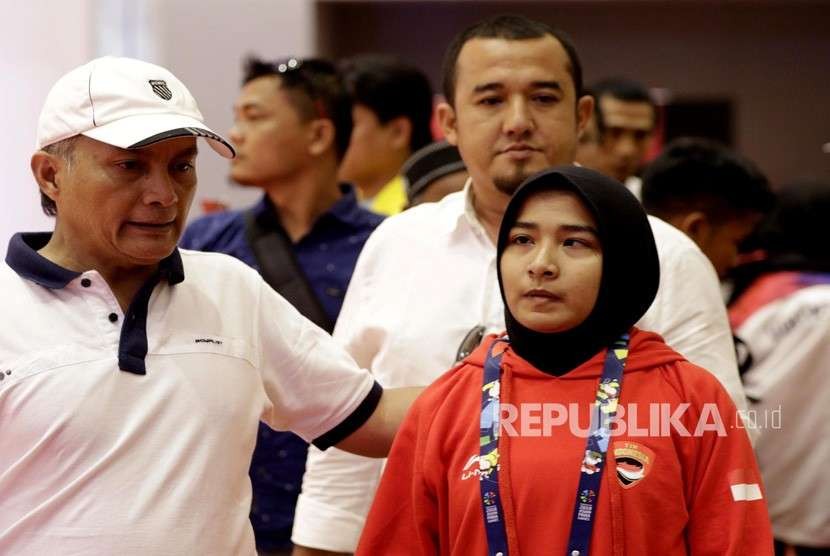REPUBLIKA.CO.ID, JAKARTA -- Indonesian women's judo athlete Miftahul Jannah was disqualified from the Asian Para Games 2018 blindness judo match at the Jakarta International Expo Kemayoran, Jakarta, on Monday. The sanction was given following her reluctance to follow the rules of the match, which included removing the hijab.
"She got a disqualification notice from the referee because there are referee rules and international-level match rules at the International Blind Sports Federation (IBSA) that players must not use the hijab and must remove the headscarf while competing," said the person in charge of the 2018 Asian Para Games judo match, Ahmad Bahar, when contacted in Jakarta, Monday.
Bahar said that Miftahul did not remove the headscarf while competing because she did not want the nakedness to be seen by the members of the opposite sex. "We directed the athlete to remove it, but she did not want to."
In fact, from the National Paralympic Committee (NPC), the team of the Indonesian Contingent Commander tried and brought parents from Aceh to speak in defense of the country, he said in support of the blind athletes.
The 21-year-old athlete, according to Bahar, had stepped on the match mat and was reluctant to remove the hijab in the 52-kilogram class match.
"The thing that needs to be emphasized is that the jury does not allow Muslims to join the competition. International rules start in 2012, every athlete competing in a judo branch must not wear the veil because in judo, there is a technique below and the veil can interfere," he said.
Bahar explained that the presence of the hijab has the potential to be used by opponents to strangle athletes' necks and can have fatal consequences for the athletes who wear the hijab.
"We accept the rule that it is not permissible for athletes to wear the hijab, not like that. It is not permissible to use the hijab because there are harmful consequences," Bahar said.
According to, Deputy IV of the Ministry of Youth and Sports in Improving Sports Achievement Mulyana stressed that there was no discrimination from the judo sport at Asian Para Games 2018. Mulyana emphasized that international judo regulations prohibit the use of covers or head protectors for judo athletes for safety reasons.
"The principle is for safety. There is no discrimination," said Mulyana, at the Main Press Center (MPC) at the GBK Arena Building, Senayan, Jakarta, Monday (Oct 8).
The Indonesian contingent in the 2018 Asian Games, until Monday at 1:00 p.m., collected three gold medals, four silver medals and five bronze medals. An additional two gold medals on Monday were presented by the para-athletic athlete, Suparniyati, in the female F20 bulletproof number and the para-athletic athlete, Rica Oktavia, in the T20 women's long jump.
Meanwhile, the addition of three silver medals each were presented to Muhammad Fadli Immanuddin in the bicycle racing group C4 individual time trial number, Saori Sufyan bicycle racing number C5 individual time trial number, and Ana Widyasari in the table tennis 11th class women's singles (tuna grahita).
Then, four bronze medals were each presented to Tiwa in the para-athletic branch, Sri Sugianti in the bicycle racing branch, Halawa Herman in the bicycle racing branch, and Adyos Astan in the wheelchair table tennis branch.


